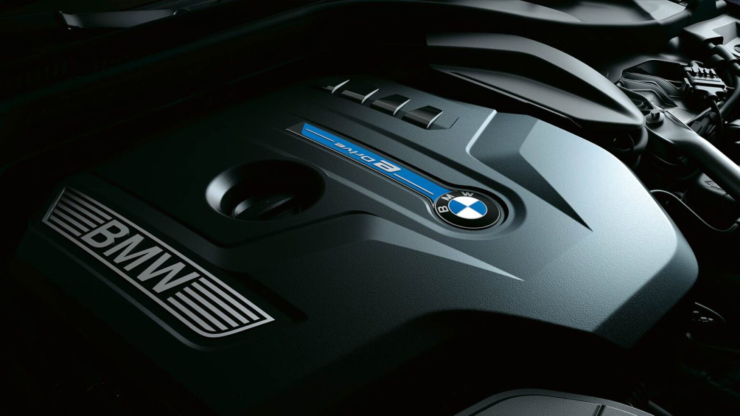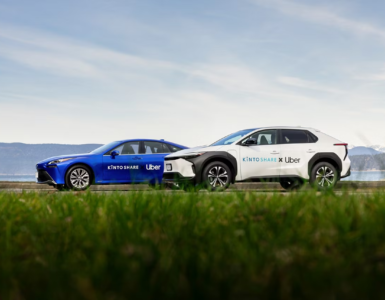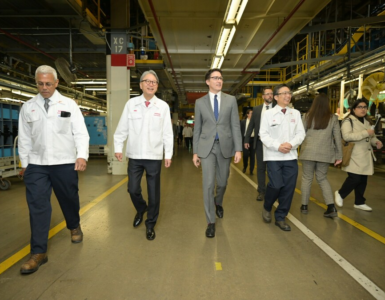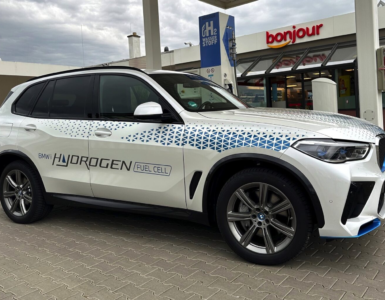BMW is going all-in on hydrogen: they’ve moved on from electrics and have already launched their new car – Lagrada.
In the past few years, the worldwide automotive industry has been searching for cleaner alternatives to traditional combustion engines. Battery-electric vehicles (BEVs) have gained popularity, but there are still concerns about range and infrastructure. In this scenario, hydrogen fuel cell electric cars (FCEVs) present an appealing option.
Global sales of hydrogen fuel cell vehicles (FCEVs) exceeded 72,000 units as of 2023. Even though this number is continually rising, it still only makes up a small part of the entire auto market. In addition, global passenger car sales reached around 80 million units in 2023. As a result, the ratio of hydrogen cars to the overall automotive industry is approximately 1 to 1.1, which means that for every hydrogen car sold globally, there will be approximately 1.1 conventional gasoline or diesel vehicles.
Despite widespread skepticism, BMW is one of the manufacturers and policymakers that believe that the lightest atomic element holds the key to achieving carbon neutrality—for personal vehicles, commercial trucks, and the electrical grid.
🔥 What about we co-host a webinar? Let's educate, captivate, and convert the hydrogen economy!
Hydrogen Central is the global go-to online magazine for the hydrogen economy, we can help you host impactful webinars that become a global reference on your topic and are an evergreen source of leads. Click here to request more details
How BMW’s hydrogen future is shaping up
BMW unveiled the 750hL, a hydrogen-powered vehicle with a strong V12 engine, in 1995. Despite its dual nature, it compromised performance and had limited hydrogen infrastructure. Later came Hydrogen 7, which was inefficient due to changes in energy density. Even with infrastructure constraints, hydrogen production costs, and competition from BEVs, BMW is currently at the vanguard of FCEVs.
The iX5’s “global tour,” which started in Antwerp, Belgium, has now expanded to include a prototype fleet of iX5 Hydrogen SUVs that the Bavarian automaker has started in South Africa. Based on the X5, a popular BMW model with an internal combustion engine (ICE), the iX5 is claimed to be the most potent fuel-cell car in the world.
BMW is putting faith in its new hydrogen SUV
The iX5 Hydrogen produces electricity via a hydrogen fuel cell, which drives the electric motor while releasing only water vapor from the tailpipe. The iX5 Hydrogen has a range of up to 300 miles on a single tank of hydrogen and can be refueled in about 3-4 minutes.
Aside from its clean emissions, the BMW iX5 Hydrogen has impressive performance credentials. With 401 horsepower, it can accelerate from 0 to 60 mph in less than 6 seconds, providing a thrilling driving experience. It maintains highway prowess with a top speed of more than 112 miles per hour. The 6 kg hydrogen tank provides a reasonable range, and the quick refueling time of 3-4 minutes ensures minimal downtime on the road.
Additionally, the BMW iX5 Hydrogen has a large range and low refueling periods, making it a potentially viable alternative to gasoline-powered automobiles. However, difficulties with hydrogen infrastructure and pricing must be addressed before it can be broadly used. Remember that the hydrogen engine is a concept car with no set price and is not yet available for purchase. The BMW iX5 Hydrogen will eventually be available for consumer purchase, but this depends on different market conditions.
Strong performance under extreme conditions
The BMW iX5 Hydrogen pilot fleet recently completed hot-weather testing in the UAE, demonstrating the fuel cell drive system’s impressive performance in extreme temperatures, sand, dust, and humidity fluctuations. The Munich-based development team tested the electric systems’ functionality and cooling power to ensure the vehicles’ full performance while retaining BMW’s renowned driving dynamics.
What distinguishes the BMW iX5 Hydrogen from an electric car?
The BMW iX5 has an electric motor, similar to a battery electric vehicle (BEV). The main difference is in the energy storage system. Instead of power in the battery, hydrogen is stored in tanks before being transformed into electrical energy for the drive unit via the fuel cell. This means that a hydrogen car, like a combustion engine vehicle, may be refueled in 3-4 minutes while still providing all of the benefits of electromobility.
READ the latest news shaping the hydrogen market at Hydrogen Central
BMW is going all-in on hydrogen: they’ve moved on from electrics and have already launched their new car – Lagrada. source








